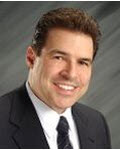Anxiety-Free Dentistry Can Help Control Dental Fears

Many patients face their dental appointment with a degree of anxiety. Research has shown that the largest cause of this fear is the fear of pain ... the fear that at some time during their dental care treatment they are going to be hurt.
Sedation dentists have information available about a variety of drugs known as local anesthetics, which are the safest and most effective drugs in all of medicine. Local anesthetics are a resource used in anxiety-free dentistry for the prevention and management of dental anxiety resulting from dental and surgical procedures, not to put the patient to sleep.
Local anesthetics, commonly called Novocain by patients (Novocain is no longer used, having been replaced by newer, safer, and more effective drugs), are drugs which, when injected near a nerve, prevent stimulation from reaching the brain where it would be interpreted by a person as pain. Sedation dentists interested in practicing anxiety-free dentistry know these also work very well as temporary relief of a tooth ache.
The injectable local anesthetics, used today by sedation dentists provide complete relief about 100% of the time. The duration of the numbness varies from drug to drug -- some providing short durations, while others remain effective for up to 12 hours. A doctor will select a drug for a patient that is appropriate for the type of dental care procedure they are having done.
In order to be effective during dental treatment, local anesthetics usually need to be injected. For many people, this is the most uncomfortable part of the entire dental appointment.
Local anesthetics can be administered quite comfortably. Sedation dentists and dental hygienists take pride in their ability to administer local anesthesia easily and comfortably.
The following are some of the procedures sedation dentists practicing anxiety-free dentistry might use to make this procedure more comfortable:
- Place the patient in a reclined position during the injection.
- Place a topical anesthetic (a gel or spray) on the patient's gums where the injection is to be given. This should remain in contact with tissues for at least one minute.
- Use of a distraction technique, such as pulling or shaking the lip as the needle is slowly inserted.
- Injecting the local anesthetic drug slowly. This is critical to a comfortable injection.
- Permitting the local anesthetic drug time to work. Most local anesthetics will become completely effective within approximately five minutes after their injection.
If an individual is fearful of receiving a local anesthetic injection, they should tell the assistant or the sedation dentist BEFORE the procedure starts. The use of conscious sedation such as laughing gas, as part of anxiety-free dentistry, can work wonders to make this procedure more comfortable for the patient.
By Stanley F. Malamed, DDS

+Jim Du Molin is a leading Internet search expert helping individuals and families connect with the right dentist in their area. Visit his author page.
Anxiety Free Dentistry - Questions on Reducing Dental Anxiety

Q. Why do you need to have regular dental care check-ups?
A. Regular check-ups are needed to monitor your overall oral health. In addition to checking for cavities, your dentist examines the health of your entire mouth and surrounding soft tissues, checking for pre-cancerous or cancerous lesions, oral sores, and gum disease.
Your oral health is connected with your general health. Dental care check-ups can alert the dentist to other medical conditions that have symptoms in the mouth such as diabetes, nutritional deficiencies, and hormonal irregularities. Regular dental care visits are vital to prevent tooth decay, gum disease, and other conditions affecting your mouth.
Q. What can you do to feel more relaxed during a dental care appointment?
A. With the combination of modern anesthetics and new conscious sedation dentistry technology and techniques, many procedures only have minimal discomfort or are now entirely painless. Dental care providers want their patients to have maximum comfort and approach their treatments with a relaxed attitude and less dental anxiety.
There are a number of ways to decrease dental anxiety:
- Tell the dental care staff your concerns. Studies have shown that talking about your fears of possible discomfort actually reduces pain.
- Use visualization to picture yourself relaxed, or repeat messages that have a calming effect.
- Play your favorite music on a Walkman you bring with you (some dental offices are equipped with walkmans, too.)
- Arrange a signal with the dental care staff, such as raising your hand, if you need a break or feel discomfort.
Some dental care offices are now offering patients new options for stress-relief: hypnosis, self-hypnosis instructions, relaxation tapes, soft lighting, warm gel-filled eye masks, scented candles, and massaging pillows. These are helpful in reducing stress in patients that suffer from dental anxiety. Be sure to avoid the use of stimulants such as caffeine prior to your visit.
Q. Aromatherapy has a relaxing effect for many people. Is this effective for patients undergoing dental treatment?
A. Research studies conducted at Case Western Reserve University have noted that the use of aromatherapy has a significant positive effect on dental anxiety patients. Two-thirds of the patients receiving aromatherapy were more calm and relaxed than those patients without exposure to the scented fragrance oils.
Dentists are concerned about your comfort. Ask your dental provider if aromatherapy is available in the office to help reduce dental anxiety, or if you can bring your own for your dental care visit. Essential fragrance oils are available in health food stores, spas, and some grocery and drug store outlets.
Q. Are dental patients who are considered at risk for bacterial infections advised to take antibiotic medication prior to their appointments?
A. Certain medical conditions, such as heart valve problems or a recent total joint replacement, are considered at risk for infection at the site of the cardiac abnormality or joint replacement. This infection results from bacteria from the mouth entering the bloodstream and working its way to these vulnerable areas.
Consequently, dental care procedures likely to result in bleeding from the gums or mucous membranes will require patients to take antibiotics prior to that procedure. Such procedures could include, but are not limited to, extractions, implant surgery, incision and drainage for oral infection, and professional teeth cleaning.
Guidelines have been established by the American Heart Association and the American Dental Association to provide dentists and physicians with information regarding appropriate regimens for antibiotic therapy. It also outlines those situations when antibiotic therapy is or is not indicated.
There also are other medical conditions warranting antibiotic therapy prior to dental procedures. Be sure to update your dentist regarding your medical history. Your dentist and/or physician will advise you of any special needs.
Q. Where can you receive dental services if you do not have the money to cover the related expense?
A. If you do not have either dental insurance or the money to pay for a dental visit, you should inquire about financial aid from various sources within your community.
You may need to make several calls, but the local dental society, the local public health department, or social service agencies may be able to direct you to sources of assistance. Also, check local hospitals, dental schools, and outreach clinics that may be able to provide dental services at a reduced fee.

+Jim Du Molin is a leading Internet search expert helping individuals and families connect with the right dentist in their area. Visit his author page.




